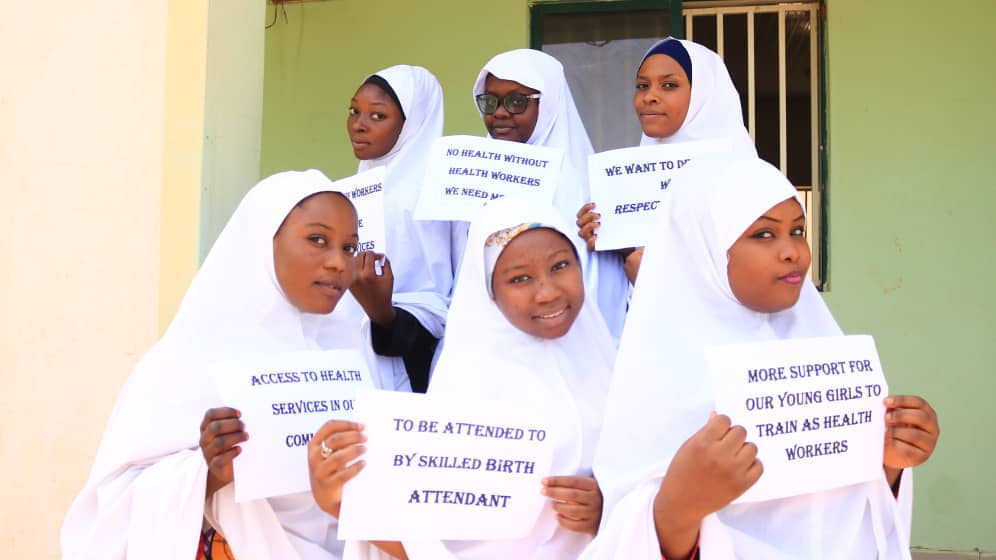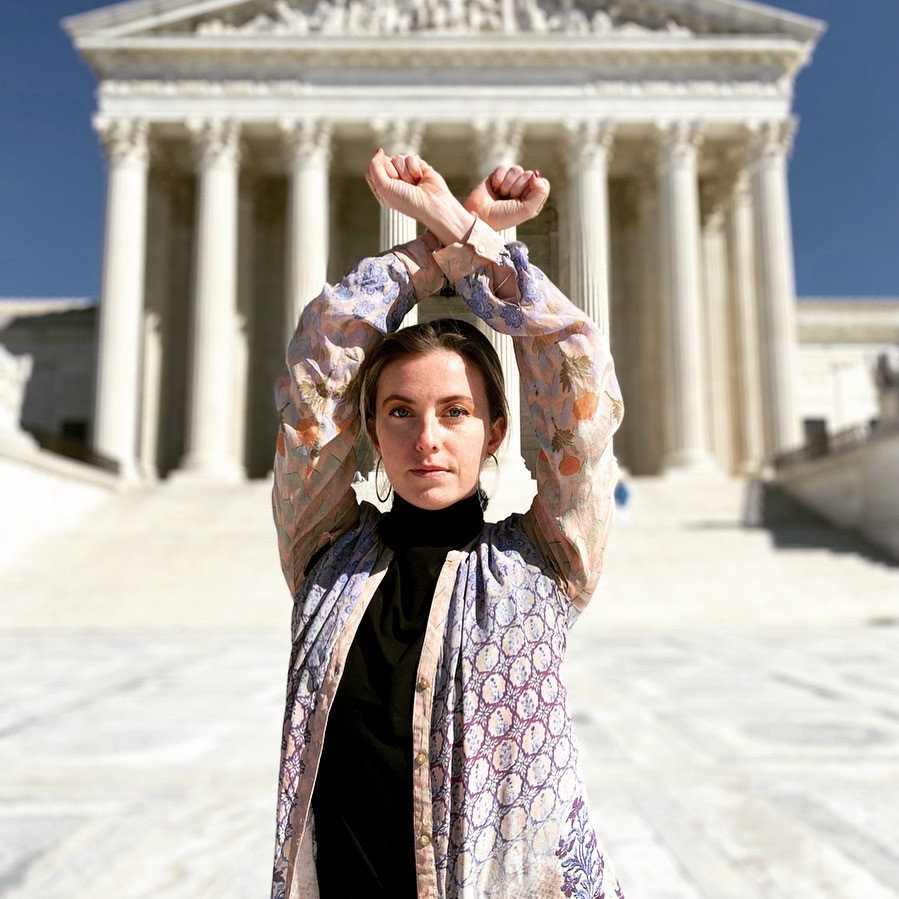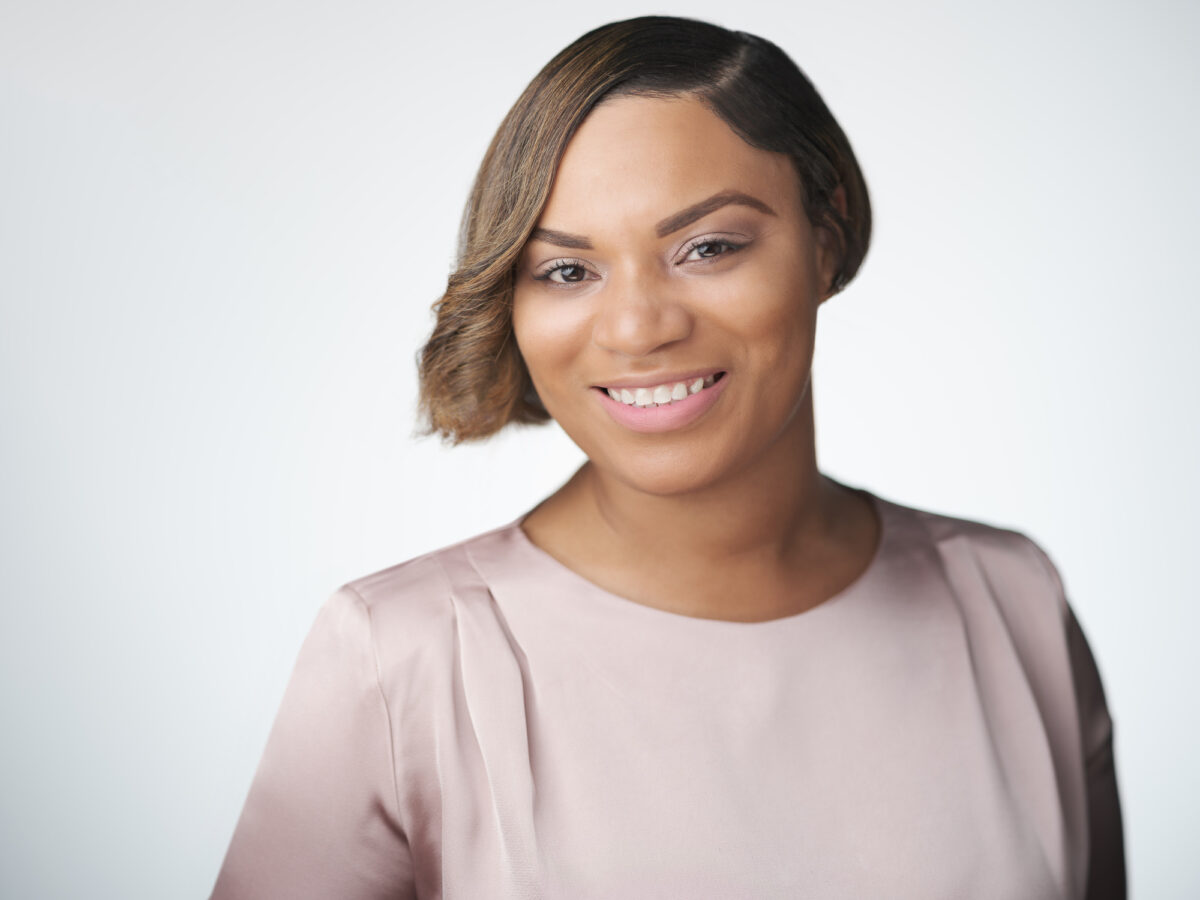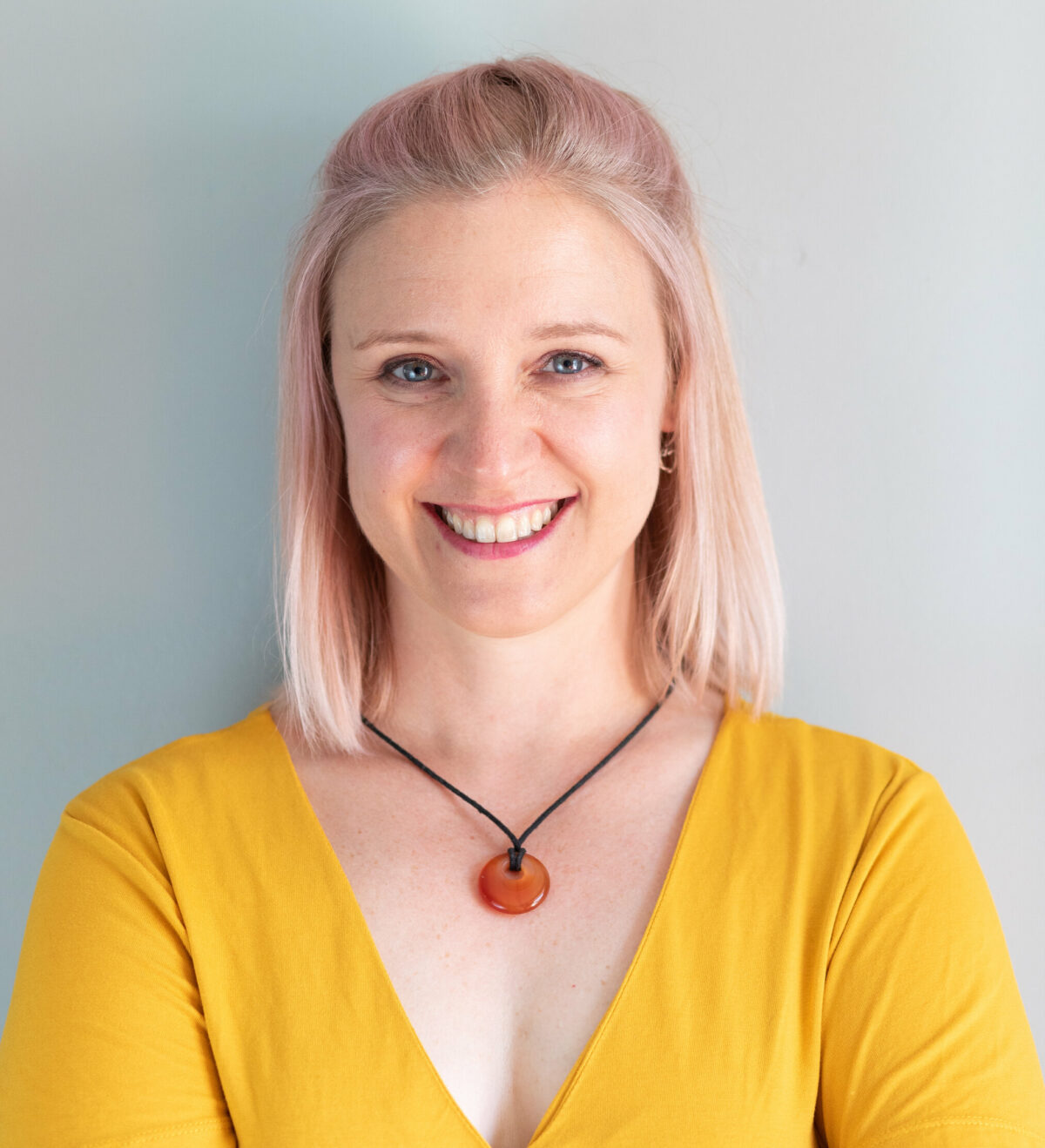In Niger State, Mohammed struggled at first to connect with young women who were reluctant to speak about their personal experiences. It was only when he encountered 15-year-old Habiba—still grieving the loss of her sister—did the campaign take off in the northern city of Minna. “I had visited Habiba’s school three times to discuss the campaign with the students” he says, “but most were not interested, or only responded reluctantly.”
On the day when Mohammed walked into the school for the fourth time, he saw a girl lost in thought under a mango tree. Habiba asked Mohammed how the campaign would bring about change. Mohammed told her he had been trained as a citizen journalist by WRA, and about their approach of bringing citizens and decision makers together to find solutions. “I was part of a delegation to the Vice President, and we called on him to ensure citizens have access to healthcare services in their communities,” he told her. It was then, with tears in her eyes, that Habiba told Mohammed how her older sister, just 17-years-old, had died after an unsafe abortion. She was her idol, her mentor, the person she looked up to for guidance about everything. According to Habiba, she was smart and determined to find a way to go to university. But such topics as sex and contraception were taboo at home and at school and her pregnancy remained a secret between the sisters, who whispered in fear about what to do. Her sister decided to take a concoction given to her by a friend. The girls cried and hugged each other. A week later she was dead. “Seeing her sister’s lifeless body was the worst experience of her life.”
“That was two years ago and since then two more girls in her school have died from unsafe abortions,” says Mohammed who encouraged her to mobilize her school friends to speak out. It would not bring back her sister, but it might stop another girl from dying by raising awareness. Habiba asked Mohammed to come back tomorrow. When he returned the next day, she was organizing and talking to different groups of girls under the scorching hot Minna sun. Their top ask: access to contraception services.
“I am passionate about this campaign. Until that point, I had never been consulted or asked about my reproductive health needs,” says Habiba. “This campaign is about action. It has given me a platform to improve adolescent reproductive health. The results will be shared with the government, and it is time those decision makers really hear our voices and respond to our needs.”
I had always felt that my voice did not count and that my opinion as a girl did not matter. This campaign seemed like the first opportunity for girls like me to speak up.
Habiba




